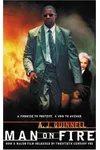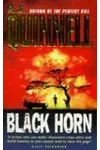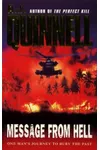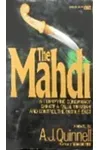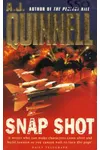Picture an English storyteller sipping vodka-soda in a Maltese bar, weaving tales of vengeance and redemption that gripped millions—meet A.J. Quinnell! Born Philip Nicholson, this enigmatic thriller novelist revolutionized the genre with his 1980 bestseller Man on Fire, introducing the iconic Marcus Creasy, a battle-scarred mercenary with a heart of gold. With over 10 million books sold worldwide, Quinnell’s action-packed narratives still thrill readers today.
Quinnell’s life was as adventurous as his novels. From his travels across Africa and Asia to his quiet nights writing standing up in Gozo, Malta, he drew inspiration from real people and places, crafting stories that pulse with authenticity. Let’s dive into the life, works, and legacy of this master of suspense!
The Making of A.J. Quinnell
Born on June 25, 1940, in Nuneaton, England, Philip Nicholson grew up admiring Ernest Hemingway, dreaming of becoming a writer. A teenage encounter with the gruff author in Tanzania left him determined to be a kinder storyteller. After school at Queen Elizabeth’s Grammar School in Wakefield, he worked in shipping and textiles, even aiding an Italian passenger during a medical emergency on a flight, which sparked connections that fueled Man on Fire. Choosing the pseudonym A.J. Quinnell—after rugby player Derek Quinnell and a bartender’s son’s initials—he kept his identity secret, letting his stories take center stage.
A.J. Quinnell’s Unforgettable Stories
Quinnell’s debut, Man on Fire (1980), set the thriller world ablaze. It follows Marcus Creasy, a broken ex-mercenary hired to guard Pinta, a young girl in Italy. When she’s kidnapped by the Mafia, Creasy’s quest for vengeance is both heart-wrenching and explosive. Inspired by real kidnappings, the novel’s raw emotion and gritty action made it a global hit, selling over 8 million copies.
The Creasy series continued with The Perfect Kill (1992), where Creasy seeks revenge after his family dies in the Lockerbie bombing, training a young orphan into an assassin. The Blue Ring (1993) and Black Horn (1994) pit Creasy against drug cartels and old enemies, blending intricate plots with moral depth. Quinnell’s standalone novels, like The Mahdi (1981) and In the Name of the Father (1987), showcase his knack for weaving real-world issues into pulse-pounding tales. His style—vivid, character-driven, and unflinchingly intense—earned him a cult following, especially in Japan, where Creasy’s samurai-like dedication resonated deeply.
Why A.J. Quinnell Matters
Quinnell’s impact on the thriller genre is undeniable. His ability to humanize hardened characters like Creasy set a new standard for action heroes, influencing modern authors like Jack Carr. The 2004 Man on Fire film, starring Denzel Washington, brought his work to new audiences, cementing Creasy as an icon. In Japan, his novels sparked literary tourism to Malta, where fans flocked to the Gleneagles bar he frequented. Quinnell’s stories, rooted in real experiences, offer timeless themes of justice and redemption that continue to captivate.
- Born: June 25, 1940, Nuneaton, England
- Died: July 10, 2005, Gozo, Malta
- Key Works: Man on Fire, The Perfect Kill, The Blue Ring, Black Horn
- Pseudonym Origin: Inspired by rugby player Derek Quinnell and a bartender’s son’s initials
- Notable Fact: Sponsored a local soccer team in Gozo
Ready for a thrilling ride? Snag Man on Fire and dive into A.J. Quinnell’s world of heart-pounding suspense!
